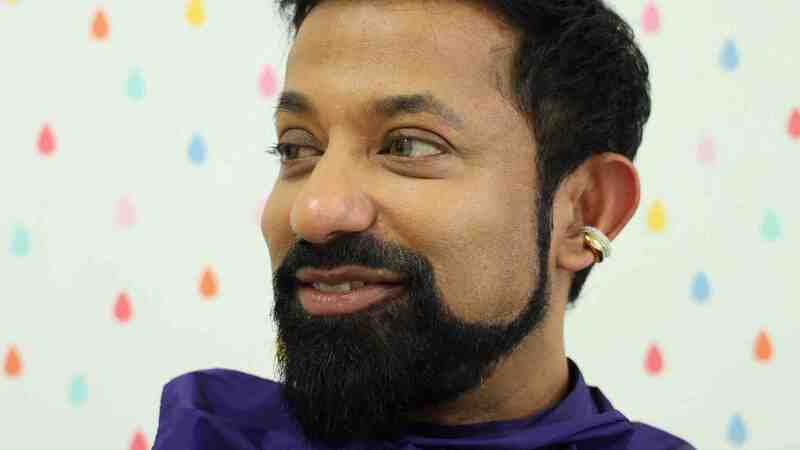You are viewing your 1 free article this month. Login to read more articles.
Linwood Barclay's best domestic thrillers
You’re sitting across the breakfast table from your husband. He’s eating his toast and sipping Earl Grey as he peruses the financial pages of the Guardian. You have no idea what he’s thinking.
You can take a guess. He’s mulling over the financial crisis sweeping across Europe, or wondering whether he’ll have time to drop by the dealership on the way home to see why the Audi’s making that funny noise. Or maybe this thought has crossed his mind as he’s peered over the top of the newspaper at you: “I could do it. I could get away with it. They’d never find her body.”
Welcome to the new breed of psychological thriller – the one that gets you where you live. Rather than exploit our fears of an uncertain world overrun with serial killers, gangs and terrorists bent on global catastrophe, more authors are mining the uncertainty that exists in that most holy of relationships: matrimony.
Real events have inspired countless thrillers that make us want to retreat into our homes and lock the doors, to find comfort in the arms of our loved ones. But what if the home isn’t safe either? What if that loved one isn’t so comforting? The government has installed hundreds of thousands of surveillance cameras to catch bad people doing bad things, but none will see a woman slipping arsenic into her husband’s coffee, or a man knotting a stocking around his wife’s neck.
Not that all of the current crop of domestic thrillers involve spouses planning to kill each other. But what lies at the core of all of them are characters who can’t trust those closest to them. Often the reader can’t trust them either. The story’s narrator may not be privy to all the facts – or they may know them all, but not be willing to tell.
Consider the couple in Gillian Flynn’s new novel, Gone Girl, in which a husband is the prime suspect in the murder of his wife, who is missing. The story unfolds, in alternating chapters; from the husband’s point of view (in the present), and the wife’s (in the past). As one spouse begins to unravel the motives and actions of the other, the reader is captivated. Not only do the characters not know who to believe – the reader doesn’t, either. Flynn says: “I’ve always adored an unreliable narrator. To slowly discover that this person to whom you’ve entrusted yourself is lying, fibbing, omitting or shading the truth makes one feel incredibly queasy – in the best way.”
The home is a ripe setting for the thriller, she finds. “We live in an angst-ridden time. Wars, the economy, the environment, this insistent feeling that we’re heading toward a global meltdown of some sort. We don’t feel secure. Something’s wrong, but we don’t feel we have the power to do anything about it on a macro level. It feels like all of this unease is settling on our doorstep – or in the case of a domestic thriller, right inside our house. We don’t feel safe even in our own homes, and literarily that unease translates quite nicely into a domestic thriller.”
Flynn also has some theories on why this kind of thriller is so hot right now. “My generation, ‘Generation X’ – the famed child-of-divorce generation – has come of age. I remember divorce being such a sudden, much-discussed phenomenon that I constantly worried that my parents might divorce. Our generation, in turn, tends to take marriage very seriously; we marry later, and thoughtfully; we tend to become thoroughly entwined with each other. The stakes feel quite high. I think a lot of that unease goes into domestic thrillers. They get at those underlying marriage freak-out questions: Who are you? How can you be thinking this? What will this do to us? What if something goes wrong?”
In S.J. Watson’s Before I Go to Sleep, a woman awakens each morning with no memory of the previous day’s events. Each day she struggles to piece together the previous 24 hours, as well as the details of the accident that precipitated her memory loss. She’s totally dependent on her husband, but is he really helping her? Watson is effusive about the new breed of domestic thrillers: “[They] can have a sort of quiet, creeping dread that maybe contrasts with a more conventional police thriller... people love a mystery; they love trying to figure out what’s going on in a book; they love to feel surprise.”
Marcus Sakey explores domestic dalliances in The Two Deaths of Daniel Hayes, but with a twist. It’s not just the reader who’s wondering if a husband killed his wife – the husband is wondering whether he did it, too. In Joy Fielding’s Still Life, a bedridden woman everyone believes to be comatose is terrified to learn who is responsible for her accident – and they are determined to finish the job.
In Stephen King’s ‘A Good Marriage’, a novella from Full Dark, No Stars, a woman discovers perhaps the darkest secret imaginable about her man. (This story put me in mind of Russell Williams – a respected Canadian colonel and highly regarded pilot who had flown such dignitaries as Queen Elizabeth II an d Prince Philip – who was convicted as a serial rapist and murderer. His wife had no inkling of his depraved double life.) ‘What if?’ – the two words are always running through a thriller writer’s head. What if my husband is trying kill me? What if someone is trying to frame me for my wife’s murder? What if I killed my spouse, but have no memory of it? These are the kinds of ‘what ifs?’ that get us where we live.
I love a thriller with global stakes: James Bond, Jason Bourne. I get a charge out of Jack Reacher singlehandedly taking on a room full of badasses in a diner and still taking the time to pay for his coffee. But I don’t identify with these heroes. I am no Jack Reacher. I’ve been known to whine for days about a paper cut. It has been a long time since I tried to smuggle plutonium. The characters in domestic thrillers... I get these people. I know these people. I am these people. We think we know what our spouses are thinking. But what if we’re wrong?
The best domestic thrillers
Gone Girl
by Gillian Flynn
An unusual crime novel told from alternate points of view. A wife, Amy, disappears – but why? And who is telling the truth? Amy’s diary leads up to the event and Nick’s starts from it, culminating in a gut-wrenching twist that leaves you hooked until the end.
Signs of Life
by Anna Raverat
This is an addictive psychological drama about a disastrous love affair, ending in a man’s death and skewed memories. Rachel’s affair ten years ago spiralled out of control and left her in pieces; we find her writing at her window, trying to put them back together.
Every Contact Leaves a Trace
by Elanor Dymott
Alex is a solitary man in his thirties who has found love in the form of his beautiful and vivacious wife, Rachel. When Rachel is brutally murdered, Alex begins to confront the terrifying reality that neither his life, nor his love, are the things that he thought they were.
The Two Deaths of Daniel Hayes
by Marcus Sackey
Every writer muses: “What if the reader isn’t sure whether the husband killed his wife?” Sakey asks: “What if the husband isn’t sure whether he killed his wife or not?” Billed as being one of the best new faces in the business by Lee Child, Sackey is one to watch.
Before I Go to Sleep
by S.J. Watson
Smash-hit debut novel in which a woman loses her memory every night while she sleeps and doesn’t recognise her husband, Ben, when she wakes. Christine discovers her diary and scribed on the first page are three words: “Don’t trust Ben.” Cate Blanchett is tipped to play Christine in a new Hollywood adaptation.
Linwood Barclay’s The Accident is published in June by Orion; a new edition of No Time for Goodbye is out now
.















